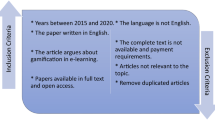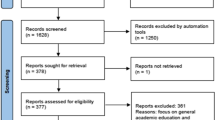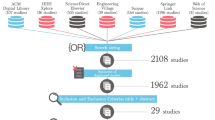Abstract
Problem-solving is one of the biggest challenges that students can find in an Engineering degree. Information and communication technologies are of great use in this regard, providing learners with tools that complement their study and facilitate skills acquisition. A good strategy to enhance student motivation towards problem-solving is to use engaging and interactive gamification techniques. To achieve this, we developed a web board game with six categories of problems for the Industrial Systems Optimization Techniques subject, which is part of the Industrial Organization Engineering curriculum at Madrid Open University. The game relies on case-study simulators for six categories of problems in such way that the cases presented to the students are always different. Students receive instant feedback about the accurateness of their response as well as the correct solution. The results of the experience, based on data obtained and surveys carried out, indicate that the board game is dynamic and motivational as well as academically encouraging.







Similar content being viewed by others
References
Al-Hunaiyyan, A., Al-Sharhan, S., & Alhajri, R. (2017). A new mobile learning model in the context of the smart classrooms environment: A holistic approach. International Journal of Interactive Mobile Technologies (iJIM),11(3), 39–56.
Aparicio, M., Oliveira, T., Bacao, F., & Painho, M. (2019, January). Gamification: A key determinant of massive open online course (MOOC) success. Information & Management, 56(1), 39–54.
Boyle, E. A., Connolly, T. M., & Hainey, T. (2011). The role of psychology in understanding the impact of computer games. Entertainment Computing,2, 69–74.
Buckley, P., & Doyle, E. (2016). Gamification and student motivation. Interactive Learning Environments,24(6), 1162–1175.
Bunchball, I. (2010). Gamification 101: An introduction to the use of game dynamics to influence behavior. White paper, 9. http://jndglobal.com/wp-content/uploads/2011/05/gamification1011.pdf. Accessed 30 Sept 2018.
Caton, H., & Greenhill, D. (2013). The effects of gamification on student attendance and team performance in a third-year undergraduate game production module. In European conference on games based learning (p. 88). Academic Conferences International Limited.
Chen, H. R., Liao, K. C., & Chang, J. J. (2015). Design of digital game-based learning system for elementary mathematics problem solving. In Ubi-media computing (UMEDIA), 2015 8th international conference on (pp. 303–307). IEEE.
Connolly, T. M., Boyle, E. A., MacArthur, E., Hainey, T., & Boyle, J. M. (2012). A systematic literature review of empirical evidence on computer games and serious games. Computers & Education,59(2), 661–686.
De Marcos, L., Garcia-Lopez, E., & Garcia-Cabot, A. (2016). On the effectiveness of game-like and social approaches in learning: Comparing educational gaming, gamification & social networking. Computers & Education,95, 99–113.
Deterding, S., Dixon, D., Khaled, R., & Nacke, L. (2011b, September). From game design elements to gamefulness: Defining gamification. In Proceedings of the 15th international academic MindTrek conference: Envisioning future media environments (pp. 9–15). ACM.
Deterding, S., Khaled, R., Nacke, L. E., & Dixon, D. (2011a, May). Gamification: Toward a definition. In CHI 2011 gamification workshop proceedings (Vol. 12). Vancouver BC, Canada.
Dias, J. (2017). Teaching operations research to undergraduate management students: The role of gamification. The International Journal of Management Education,15(1), 98–111.
Dominguez, A., Saenz-De-Navarrete, J., De-Marcos, L., Fernández-Sanz, L., Pages, C., & Martinez-Herráiz, J. J. (2013). Gamifying learning experiences: Practical implications and outcomes. Computers & Education,63, 380–392.
Gibbs, G. (2014). Student engagement, the latest buzzword (Vol. 1, p. 1). London: Times Higher Education.
Hamari, J., Koivisto, J., & Sarsa, H. (2014, January). Does gamification work? A literature review of empirical studies on gamification. In 2014 47th Hawaii international conference on system sciences (HICSS) (pp. 3025–3034). IEEE.
Hooshyar, D., Ahmad, R. B., Yousefi, M., Fathi, M., Horng, S. J., Hooshyar, M., et al. (2015). Improving web-based problem solving skills of students with a novel game-based Intelligent Tutoring System. In Science in information technology (ICSITech), 2015 international conference (pp. 63–66). IEEE.
Hou, H. T., & Li, M. C. (2014). Evaluating multiple aspects of a digital educational problem-solving-based adventure game. Computers in Human Behavior,30, 29–38.
Hsin-Yuan Huang, W., & Soman, D. (2013). A practitioner’s guide to gamification of education. Rotman School of Management: University of Toronto.
Huotari, K., & Hamari, J. (2012). Defining gamification: A service marketing perspective. In Proceeding of the 16th international academic MindTrek conference (pp. 17–22). ACM.
Hwang, G. J., Wu, P. H., & Chen, C. C. (2012). An online game approach for improving students’ learning performance in web-based problem-solving activities. Computers & Education,59(4), 1246–1256.
Khazaal, H. F. (2015). Problem solving method based on e-learning system for engineering education. Journal of College Teaching & Learning (Online),12(1), 1.
Kim, C., Park, S. W., Cozart, J., & Lee, H. (2015). From motivation to engagement: The role of effort regulation of virtual high school students in mathematics courses. Journal of Educational Technology & Society,18(4), 261–272.
Lee, J. J., & Hammer, J. (2011). Gamification in education: What, how, why bother? Academic exchange quarterly,15(2), 146.
Lonka, K., & Ahola, K. (1995). Activating instruction: How to foster study and thinking skills in higher education. European Journal of Psychology of Education,10(4), 351–368.
Maroney, K. (2001, May). My entire waking life. The Games Journal. Retrieved September 30, 2018 from http://www.thegamesjournal.com/articles/MyEntireWakingLife.shtml.
Miller, C. (2013). The gamification of education. Developments in Business Simulation and Experiential Learning,40, 196–200.
Morschheuser, B., Hassan, L., Werder, K., & Hamari, J. (2018). How to design gamification? A method for engineering gamified software. Information and Software Technology,95, 219–237.
Nicholson, S. (2015). A recipe for meaningful gamification. In Gamification in education and business (pp. 1–20). Cham: Springer.
Niman, N. (2014). The gamification of higher education: Developing a game-based business strategy in a disrupted marketplace. New York: Springer.
Normark, O. R., & Cetindamar, D. (2005). E-learning in a competitive firm setting. Innovations in Education & Teaching International,42(4), 325–335.
Nousiainen, T., Kangas, M., Rikala, J., & Vesisenaho, M. (2018). Teacher competencies in game-based pedagogy. Teaching and Teacher Education,74, 85–97.
Phungsuk, R., Viriyavejakul, C., & Ratanaolarn, T. (2017). Development of a problem-based learning model via a virtual learning environment. Kasetsart Journal of Social Sciences,38(3), 297–306.
Sarrab, M., Elgamel, L., & Aldabbas, H. (2012). Mobile learning (m-learning) and educational environments. International Journal of Distributed and Parallel Systems,3(4), 31–38.
Seaborn, K., & Fels, D. I. (2015). Gamification in theory and action: A survey. International Journal of Human-Computer Studies,74, 14–31.
Shute, V. J., Wang, L., Greiff, S., Zhao, W., & Moore, G. (2016). Measuring problem solving skills via stealth assessment in an engaging video game. Computers in Human Behavior,63, 106–117.
Sun, P. C., Tsai, R. J., Finger, G., Chen, Y. Y., & Yeh, D. (2008). What drives a successful e-Learning? An empirical investigation of the critical factors influencing learner satisfaction. Computers & Education,50, 1183–1202.
Tang, Y., Shetty, S., & Chen, X. (2010). Empowering students with engineering literacy and problem-solving through interactive virtual reality games. In Games Innovations Conference (ICE-GIC), 2010 International IEEE Consumer Electronics Society’s (pp. 1–6). IEEE.
Toda, A. M., do Carmo, R. S., Mesquita, M. A., da Silva, A. L., & Brancher, J. D. (2014). A gamified online system to aid in math lessons of junior and middle high students. In 2014 IEEE International Conference on Computer and Information Technology (CIT) (pp. 616–621). IEEE.
Torres Toukoumidis, Á., Romero Rodríguez, L. M., Pérez Rodríguez, M. A., & Björk, S. (2018). Modelo teórico integrado de gamificación en ambientes E-learning (E-MIGA). Revista Complutense de Educación,29(1), 129–145.
Tsay, C. H. H., Kofinas, A., & Luo, J. (2018). Enhancing student learning experience with technology-mediated gamification: An empirical study. Computers & Education,121, 1–17.
Urh, M., Vukovic, G., & Jereb, E. (2015). The model for introduction of gamification into e-learning in higher education. Procedia-Social and Behavioral Sciences,197, 388–397.
Zichermann, G., & Cunningham, C. (2011). Gamification by design: Implementing game mechanics in web and mobile apps. Newton: O’Reilly Media Inc.
Author information
Authors and Affiliations
Corresponding author
Additional information
Publisher's Note
Springer Nature remains neutral with regard to jurisdictional claims in published maps and institutional affiliations.
Appendices
Appendix 1: Game perception survey form
GENERAL SATISFACTION WITH THE SUBJECT’S BOARD GAME
Rate between 1 (lowest) to 5 (highest) according Likert’s scale.
- 1.
Was the game useful for your study?
- 2.
Was the availability of various and numerous examples helpful in preparing the final exam?
- 3.
Did your knowledge of the subject improve?
- 4.
Does it provide the explanations required to understanding the solution?
- 5.
Is it an incentive that motivates you to engage with the subject?
- 6.
Do you think it is a fun learning experience?
- 7.
Does it add value to the subject?
Open question:
- 8.
What is your opinion about the game, overall impression, usability, feel, structure, types of exercises, time spent on the game, etc.
Appendix 2: Exam grade and game statistics per student
See Table 12.
Appendix 3: Number of classroom accesses by students who played the game more than once
See Table 13.
Appendix 4: Detailed game statistics per student
See Table 14.
Rights and permissions
About this article
Cite this article
de la Peña Esteban, F.D., Lara Torralbo, J.A., Lizcano Casas, D. et al. Web gamification with problem simulators for teaching engineering. J Comput High Educ 32, 135–161 (2020). https://doi.org/10.1007/s12528-019-09221-2
Published:
Issue Date:
DOI: https://doi.org/10.1007/s12528-019-09221-2




